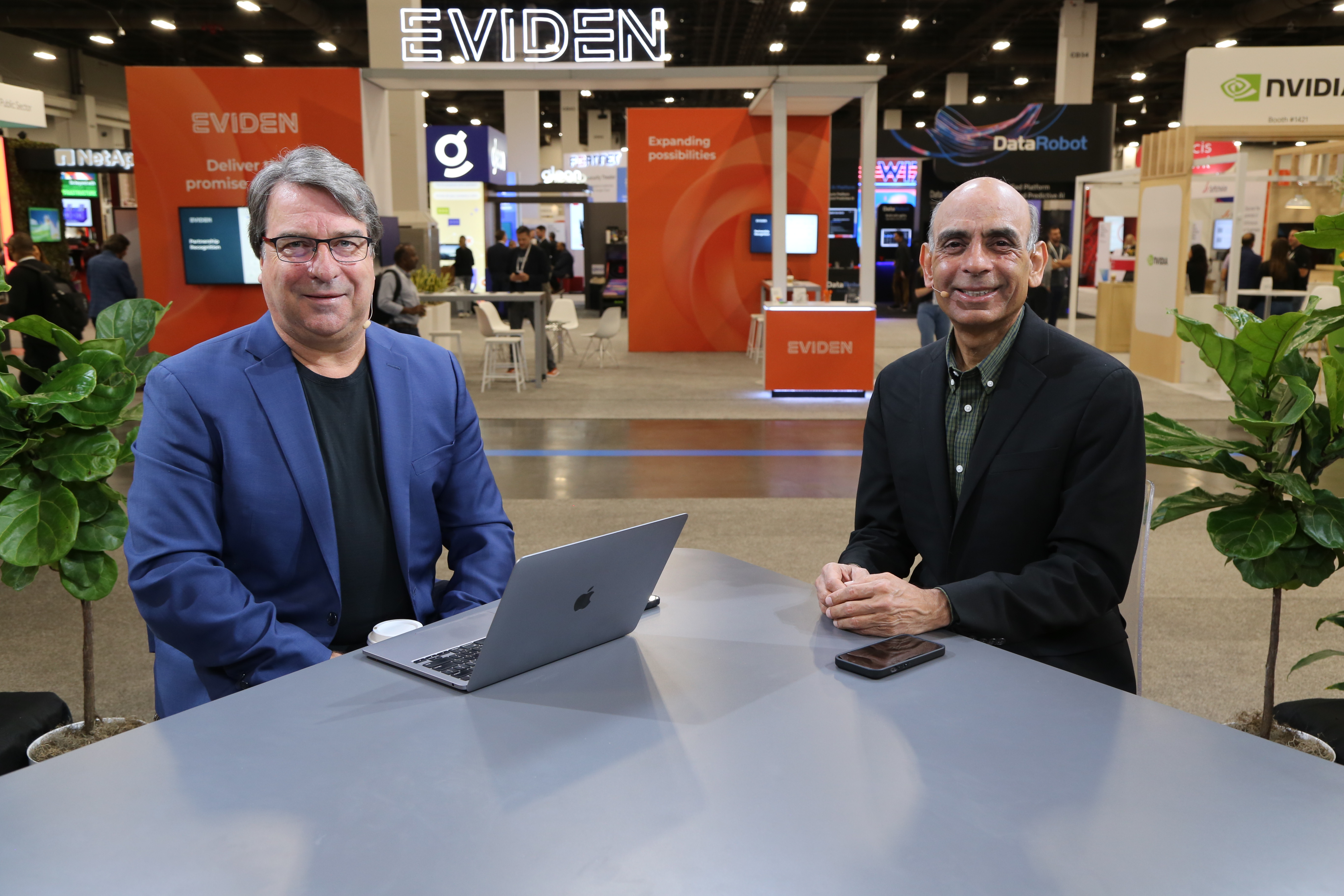 AI
AI
 AI
AI
 AI
AI
Google LLC is aggressively infusing artificial intelligence across its entire cloud stack, from hardware to applications, positioning itself as a crucial player that can offer businesses a comprehensive, AI-driven infrastructure to innovate, scale and evolve.
Through strategic initiatives, such as BigQuery Omni and AI-enhanced data management tools, Google aims to be the go-to cloud platform that empowers businesses to leverage the transformative power of AI seamlessly across multiple cloud environments.
“Google Cloud has thrown the gauntlet, and I know I’m hearing that a lot of other competitors are having sleepless nights,” said Sanjeev Mohan (pictured, right), principal at SanjMo.
Mohan spoke with theCUBE Research executive analyst John Furrier (left) at Google Cloud Next 2024, during an exclusive broadcast on theCUBE, SiliconANGLE Media’s livestreaming studio. They discussed Google Cloud’s strategic advancements in AI and cloud technologies, developments in BigQuery, and the implications of these innovations for businesses and the tech industry at large. (* Disclosure below.)
Google has taken a comprehensive approach toward embedding AI throughout its stack, creating a unified architecture that is deeply integrated with AI capabilities. This seamless integration enables real-time processing of diverse data types, with significant implications for developers and enterprises alike.
“What Google has done is … the entire stack is AI-infused,” Mohan said. “It’s so deeply integrated that they can handle text, they can handle audio, they can handle video, all in real time.”
This approach not only sets a new standard for cloud computing, but also opens a gateway for unprecedented applications and services. By harnessing the full potential of AI across its entire technology stack, Google is empowering developers and enterprises to innovate at a pace and scale previously unimaginable, according to Mohan. The ability to process and analyze text, audio and video in real time is transforming how businesses approach data analytics, customer service and content management, paving the way for more intuitive and intelligent applications that can meet the rapidly changing needs of the digital world.
“It’s a huge game changer, because Google’s basically saying, ‘Hey, it’s a multicloud world. It’s a supercloud world — we’ll connect,” Furrier added. “But we think it’ll end up in BigQuery anyway, because we’ll have the better product, which is unique.”
This sentiment underscores Google’s strategic positioning as not only a provider, but as a platform that anticipates and exceeds the evolving needs of its users in a multicloud ecosystem.
Google’s integration of AI is not just about improving existing services, but transforming how data analytics are conducted and managed, according to Mohan. The introduction of BigQuery Omni and its cross-cloud capabilities is a testament to Google’s forward-thinking approach.
“BigQuery Omni lets you run BigQuery not just in Google cloud, but in other cloud providers. They announced a cross-cloud materialized view, so you can query BigQuery on AWS much faster and cheaper,” Mohan explained. “So, this … is a big deal.”
The discussion between Mohan and Furrier emphasized the critical role of AI in enhancing the robustness and versatility of Google’s data analytics tools, paving the way for groundbreaking applications across various industries.
The main takeaway from Google Cloud Next is a future where AI’s integration into cloud services is not just an add-on, but a fundamental architecture that redefines the capabilities and possibilities of cloud computing. Google’s strategic innovations, particularly in AI-infused data management and analytics, signal a new era of technological evolution poised to impact everything from enterprise cloud strategies to the development of AI-driven applications.
“It’s not just search. Bring [data] in. Do some retrieval augmentation generation, which is unstructured data,” Furrier said. “It’s multimodal, meaning you’re creating the ability to address data so that at runtime, when you’re generating answers or reasoning, you can do it. So, it’s not just text.”
Here’s the complete video interview, part of SiliconANGLE’s and theCUBE Research’s coverage of Google Cloud Next 2024:
(* Disclosure: TheCUBE is a paid media partner for Google Cloud Next 2024. Neither Google, the primary sponsor for theCUBE’s event coverage, nor other sponsors have editorial control over content on theCUBE or SiliconANGLE.)
THANK YOU